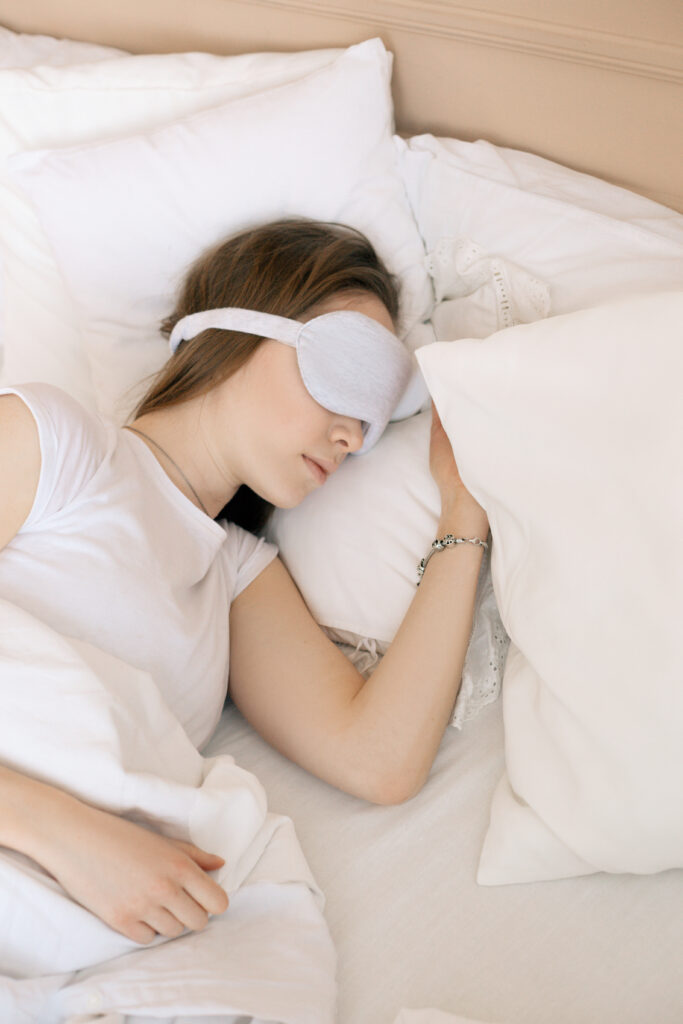A hectic lifestyle has affected everyone on this planet in some way or another. However, the biggest downside of a busy life is sleep deprivation.
Sleep deprivation has been shown to affect both physical and mental health negatively. Sleep is essential for optimal functioning, and loss of sleep can lead to decreased cognitive performance and increased risk of heart disease. Insufficient sleep is also linked to obesity, diabetes, and depression. There are many reasons why sleep is so important, and everyone must get enough of it every night.
So, what can you do to get better sleep? The simple answer is to change your lifestyle. You can also invest in good mattresses, such as spring and foam ones, and improve your sleep quality.
However, here is a list of things you can do for better sleep!

Try To Sleep And Wake Up At Consistent Times
There are certain things you can do to get a good sleep. Some of these items may be common sense, such as trying to sleep and wake up at consistent times, but others may not be so common. Below are some tips that may help improve the quality of one’s sleep:
Establish A Regular Bedtime And Wake Time
This is the most important thing someone can do to get a good night’s sleep. If you’re able to establish a regular bedtime and wake time, it will help your body become accustomed to winding down at night and waking up refreshed.
Don’t Drink Alcohol
Alcohol can lead to restless leg syndrome and other health problems that can negatively impact sleep. If you struggle to get a good night’s rest, try avoiding alcohol in favor of healthy habits like winding down for bed and getting regular sleep.
Optimize Your Bedroom Environment
Optimizing your bedroom environment is essential. Here are some tips:
1. Keep your room cool and dark. A cool room is ideal because it helps you stay asleep on hot nights. Dark colors also help to offset light shining in from outside sources and can help reduce daytime stress.
2. Get rid of any noise or light sources that might be disruptive. If you have a snoring partner or dog barks, try sleeping in separate bedrooms if possible. Or invest in earplugs and an eye mask to block out all noise while you rest.
3. Choose comfortable bedding and pillows. Make sure your sheets are comfortable and free of wrinkles, and experiment with different types of pillows until you find one that suits your sleeping style best.
Relax Your Mind In The Evening
Relaxation techniques like deep breathing or focusing on your breath can help relieve stress and tension. Similarly, relax all your muscle groups before bed – this will help you fall asleep faster and for longer.
Exercise Regularly
Not only will exercise help you burn calories but it has been shown to improve your quality of sleep as well. Exercising before bedtime has been shown to help you get a better night’s sleep while reducing stress levels and enhancing moods throughout the day.
Take Proper Diet
Make sure that your diet is balanced and healthy. Avoid foods high in sugar or unhealthy fats; instead, eat plenty of fruits, vegetables, and whole grains. Secondly, make sure that you’re getting enough exercise. Exercise releases endorphins, which have been shown to help you sleep better.
Avoid Eating Late At Night
Avoid eating late at night, as this will increase your stress hormones and may affect your ability to fall asleep. In addition, avoid munching on snacks or sugary drinks close to bedtime – these will only make it harder to get to sleep.
Get A Comfortable Mattress
One important thing is to get comfortable mattresses. You want something soft and supportive but also comfortable. Make sure the bed is placed on a firm surface and only moves around a little.
Spring and foam mattresses are excellent options for those looking for a comfortable sleep. They are relatively affordable and can last for several years. They are also eco-friendly, as they do not require chemicals or padding to keep you comfortable.
Wrap Up
There is a lot of evidence that better sleep for better health is a reality. It improves our mood and concentration and has several long-term benefits, such as reducing the risk of chronic diseases, improving cognitive function, and increasing lifespan. So if you’re looking to improve your overall health, make sure to get enough sleep.





